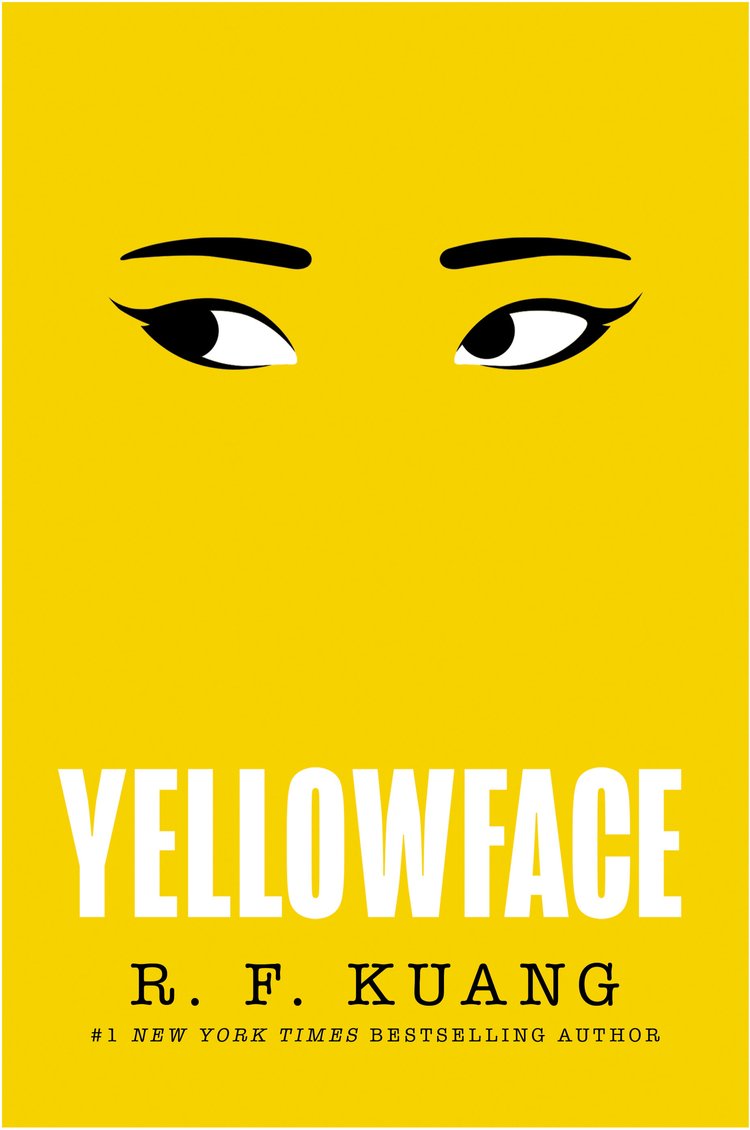In R.F. Kuang’s darkly humorous novel, “Yellowface,” a floundering writer endeavors to hold on to her new place of prominence in publishing as everything starts to close in around her. For fans of “The Plot” and “The Other Black Girl,” “Yellowface” explores who has the right to tell stories, providing an unflinching look at the publishing industry, social media and stories about suffering.
Athena Liu has everything a young writer could want: a lucrative multi-book deal straight out of college, a resume full of prestigious writing awards, a well-regarded MFA and a Netflix deal. More specifically, Athena has everything her college frenemy, June Hayward, wants. They graduated from Yale together, but Athena’s career has skyrocketed while June’s has stalled.
When Athena dies in a freak pancake-related accident, June steals her recently finished manuscript about Chinese workers in Europe during World War I and passes it off as her own, rebranding as the ethnically ambiguous but vaguely Asian sounding “Juniper Song” (her actual given first and middle name). She doesn’t lie about her identity; she just allows people to assume what they will. After securing a lucrative book deal and achieving the success of her dreams, she should be set. But she can’t shake off Athena’s ghost, literally. Someone, maybe June’s dead friend herself, knows what she’s done and won’t let her forget it.
June (or Juniper, depending on your worldview) may remind readers of people like Jeanine Cummins or Joyce Carol Oates, white women who came under fire in the literary community in recent years for cultural appropriation or accusing publishing of reverse racism respectively.
“Publishing picks a winner,” June says. “Someone attractive enough, someone cool and young and, oh, we’re all thinking it, let’s just say it, ‘diverse’ enough — and lavishes all its money and resources on them.” It’s not about the writing, June continues. “Athena — a beautiful, Yale-educated, international, ambiguously queer woman of color — has been chosen by the Powers That Be. Meanwhile, I’m just brown-eyed, brown-haired June Hayward, from Philly — and no matter how hard I work, or how well I write, I’ll never by Athena Liu.”
The thing is, in some ways, June is right. Publishing houses may not know which books will be successful any given year, but they do go out of their way to promote certain titles. But it’s why many books by debut writers of color never reach the readers who crave them most. This facet of a book’s success is often overlooked and has not been subject to the same pressures to diversify as other aspects of the publishing industry, which is still 83% white.

The book’s premise has the potential to be moralizing in its delivery, but “Yellowface” shines in its moral ambiguity. Sure, June’s not Chinese and stealing is wrong. But the manuscript was unpublishable as it was. It became a bestseller through June’s careful editing –– or at least that’s what she tells herself. Despite the setup, June is not wholly unlikable (in an “aw, sweetie … no …” kind of way), and Athena is not just an innocent victim. She harvested raw emotions and other peoples’ experiences in service of her career. She wrote an award-winning short story based off traumatic anecdotes she found at a Korean War exhibit at the Smithsonian’s National Museum of American History.
“Athena never personally experienced suffering. She just got rich from it,” June tells the reader.
Kuang marries a nuanced discussion of identity with a high stakes plagiarism story pointing to an issue that is constantly relitigated online with different characters a la “Who is the Bad Art Friend” or “Cat Person”.
T.S. Elliot once said: “Good writers borrow. Great writers steal.” But in a world where everything is content, there’s an anxiety that our lives are not our own anymore. We’re taught in school that straight-up plagiarism is wrong, but where is the line when it comes to other people’s ideas? Their lives? “Yellowface” is a story about guilt, the self-delusion you need to talk yourself out of guilt and the gray areas we’re all still learning to navigate in real time.
The story also gestures at the insularity of our social spheres. In the height of Twitter drama, the hot story of the day feels like everything anyone can talk about. But for most people, life goes on. According to Pew Research Center, only 23% of Americans say they use Twitter, so something could be the number one trending topic, and still, four out of five Americans won’t have even heard of it.
But I’d be remiss not to mention the context this novel will be born into. Woven between the threads of Kuang’s propulsive novel is a biting critique of publishing, shining a spotlight on the underpaid labor behind the books we know and love. The novel itself is published by Harper Collins, which finally negotiated a contract with its workers in February after three months of strikes for higher compensation and a stronger commitment to diversity and union rights (a fight Kuang has been a vocal ally for).
Kuang delivers a sobering look at publishing that only an insider could. She straddles the line between satire and depicting the casual racism which has been the industry norm for far too long while being masterfully aware of her different audiences. For those who want a thriller, there’s a brilliantly claustrophobic build-up. For those who want to reflect on cancel culture, the twists and turns of June’s self-justification will give them plenty to chew on. And for those who speak Mandarin, there are moments when that knowledge is rewarded especially in the editing of Athena’s book, but those who don’t speak Mandarin won’t even know what they’re missing.
This review first appeared in SPRHDRS, an exciting new media start-up amplifying media makers with historically underrepresented backgrounds and identities. This was the first review they published. I loved working with them and hope to again soon!
No Comments